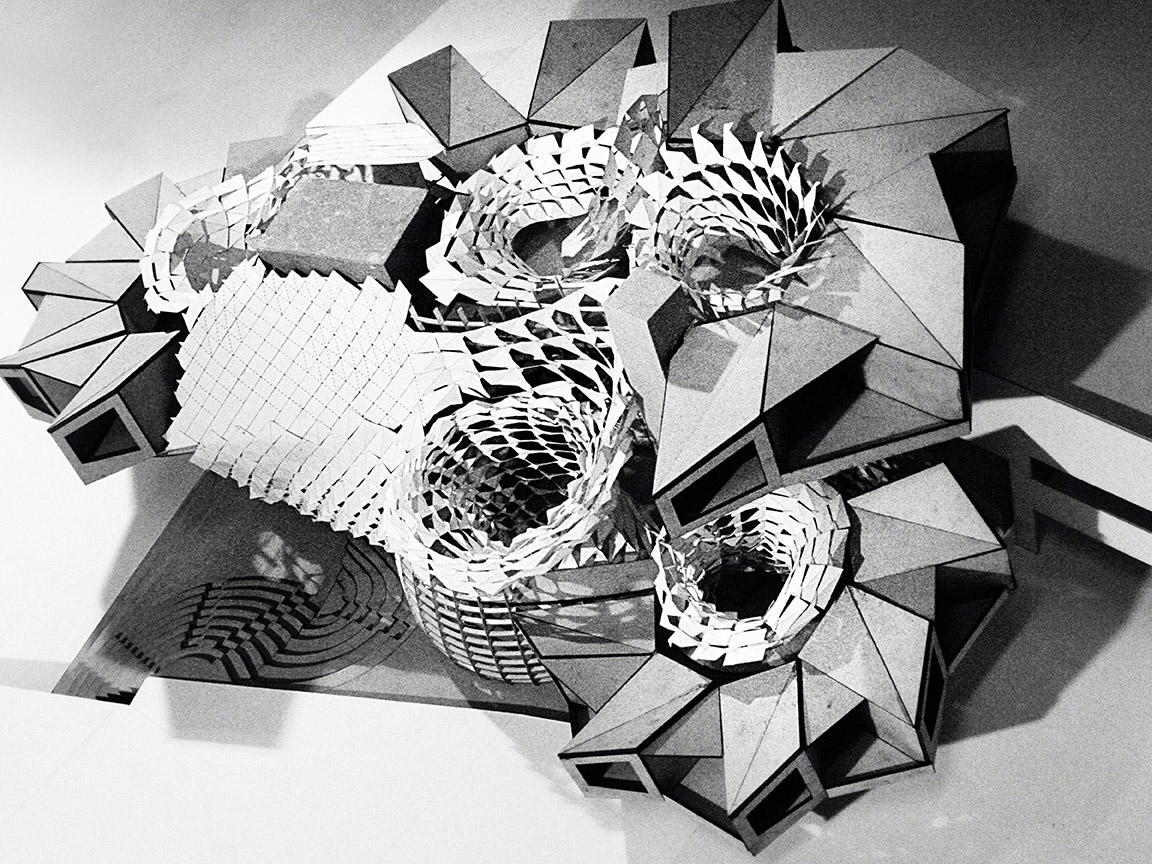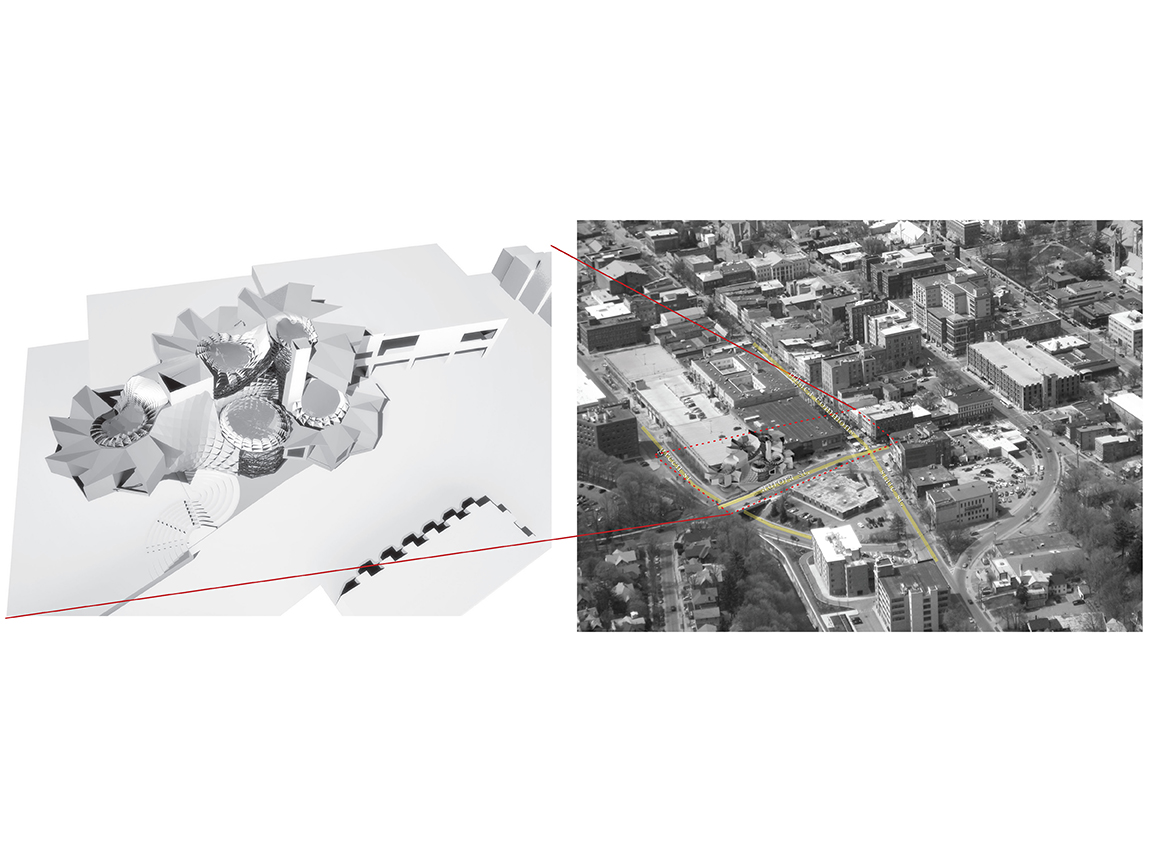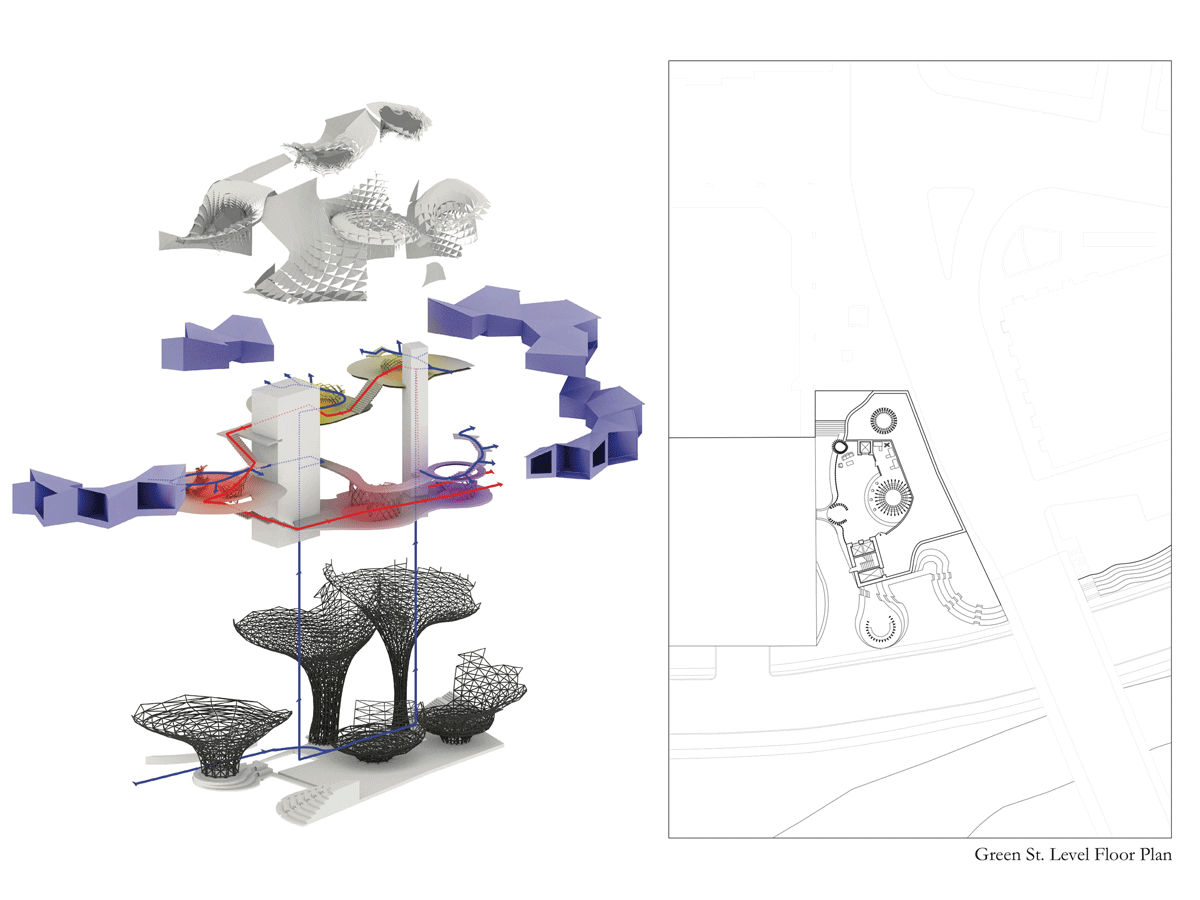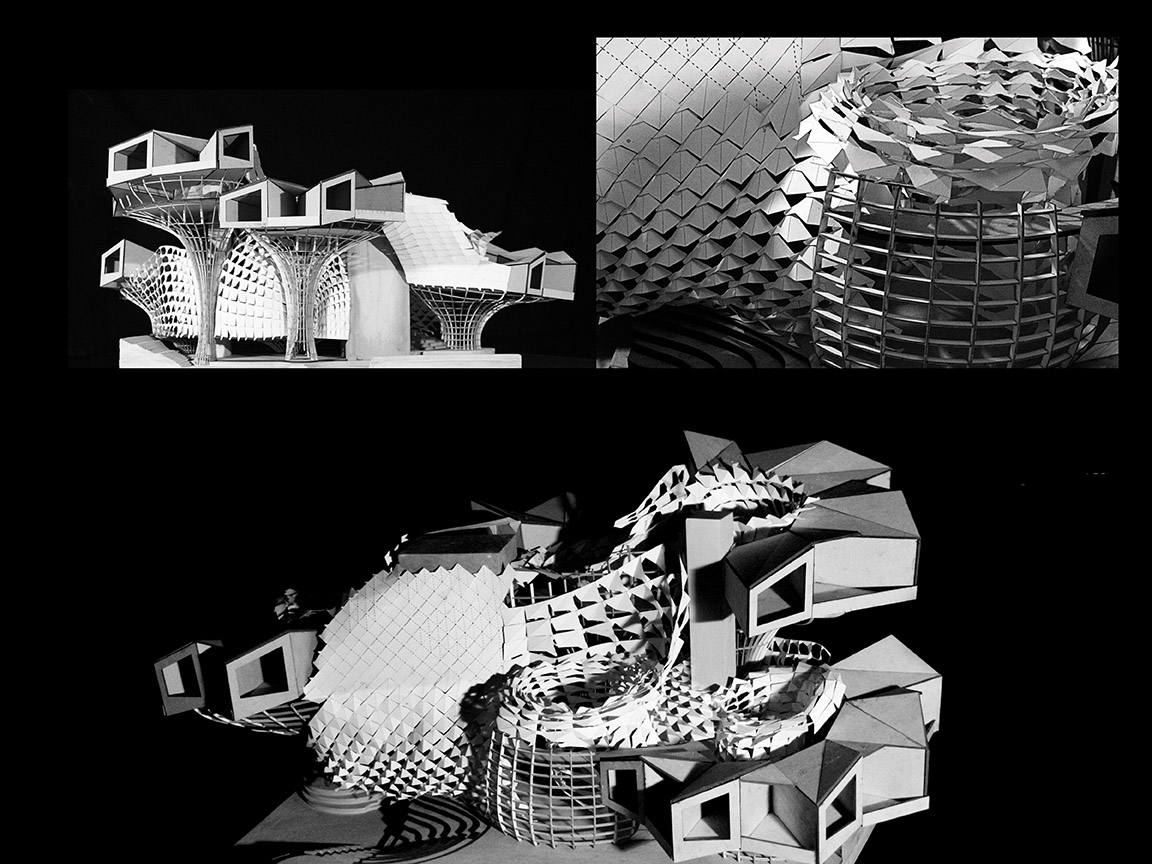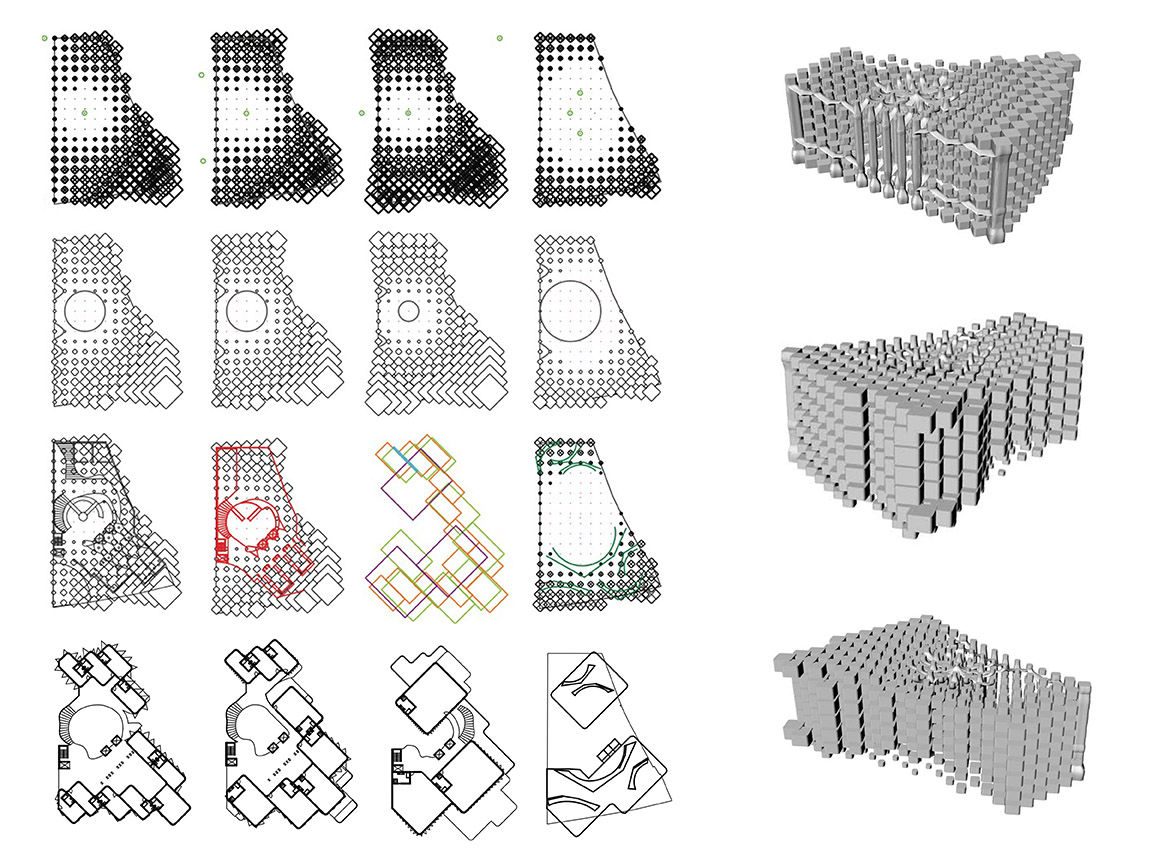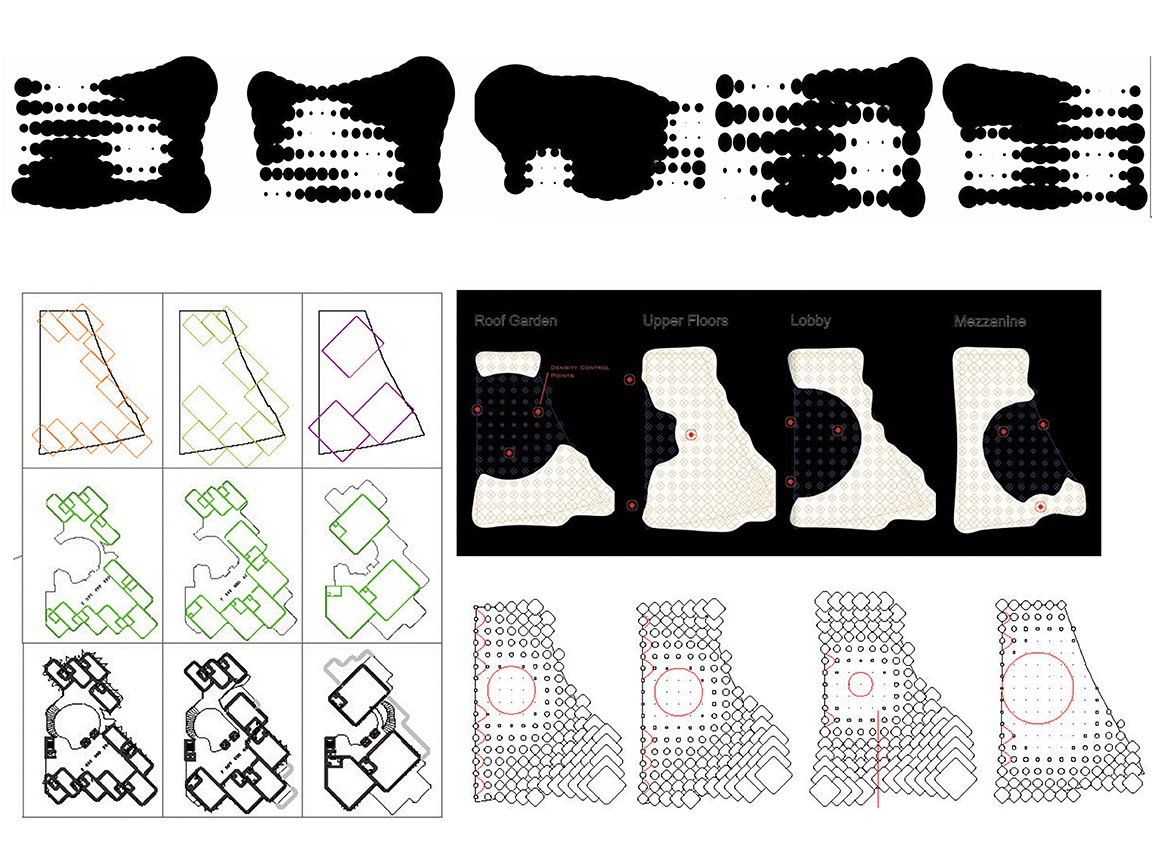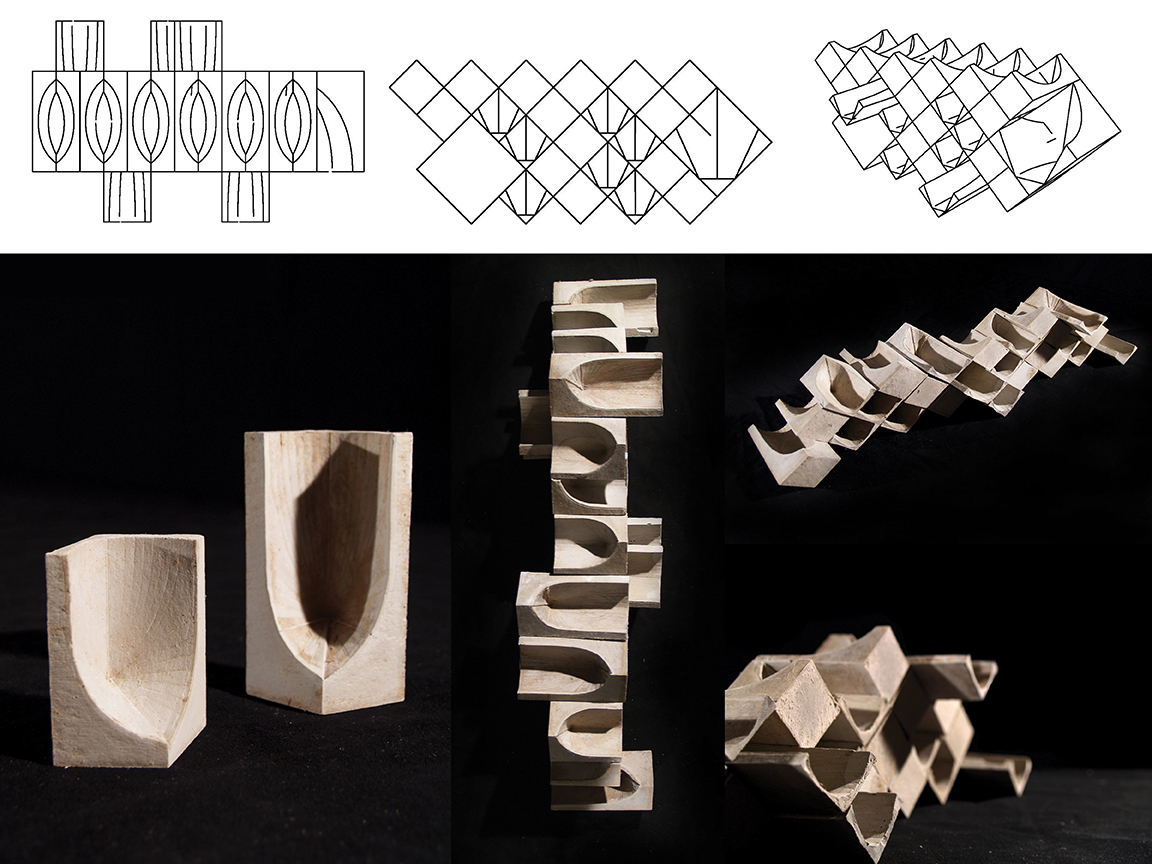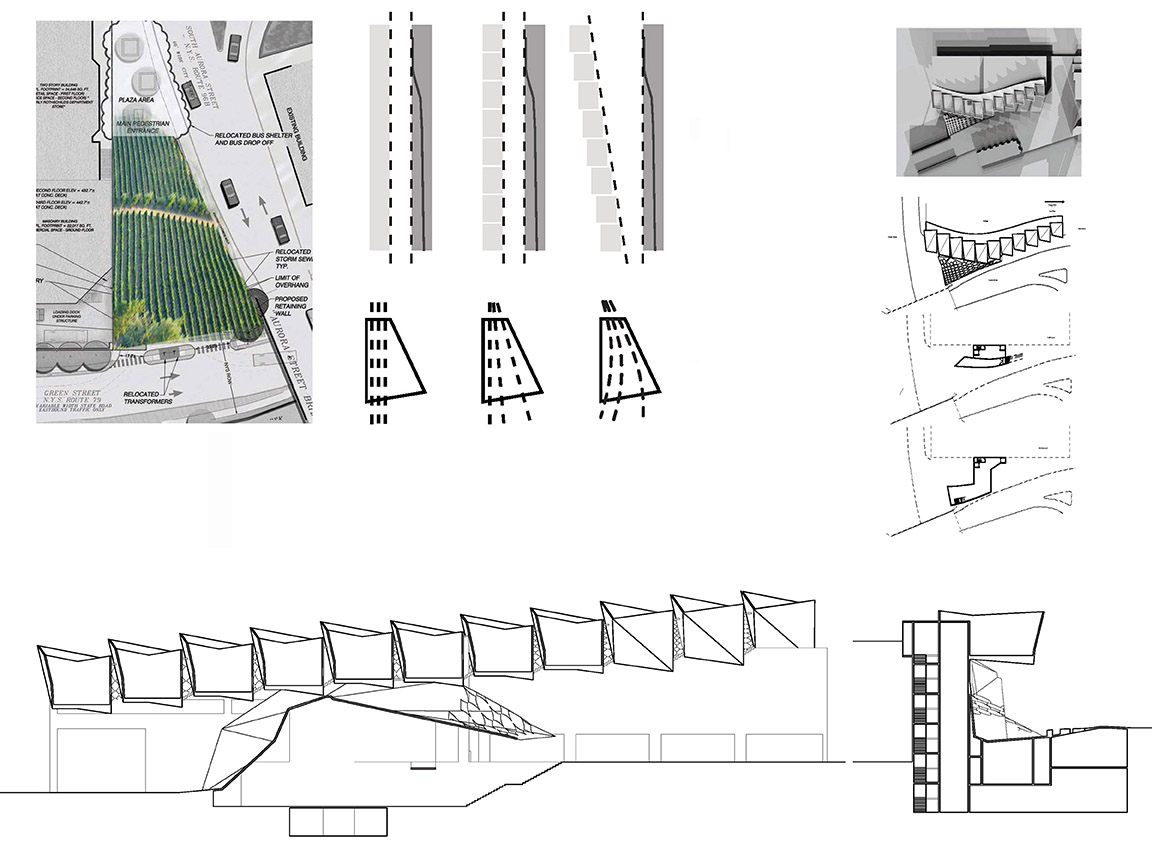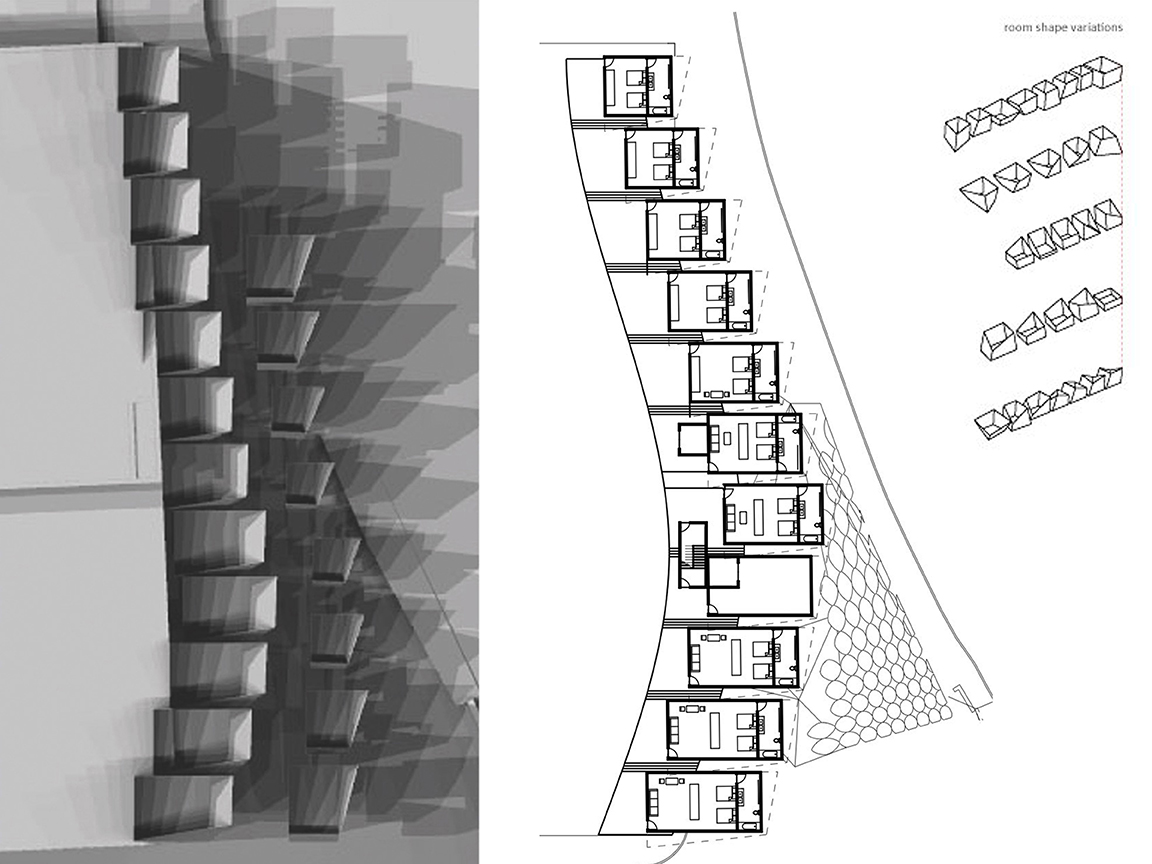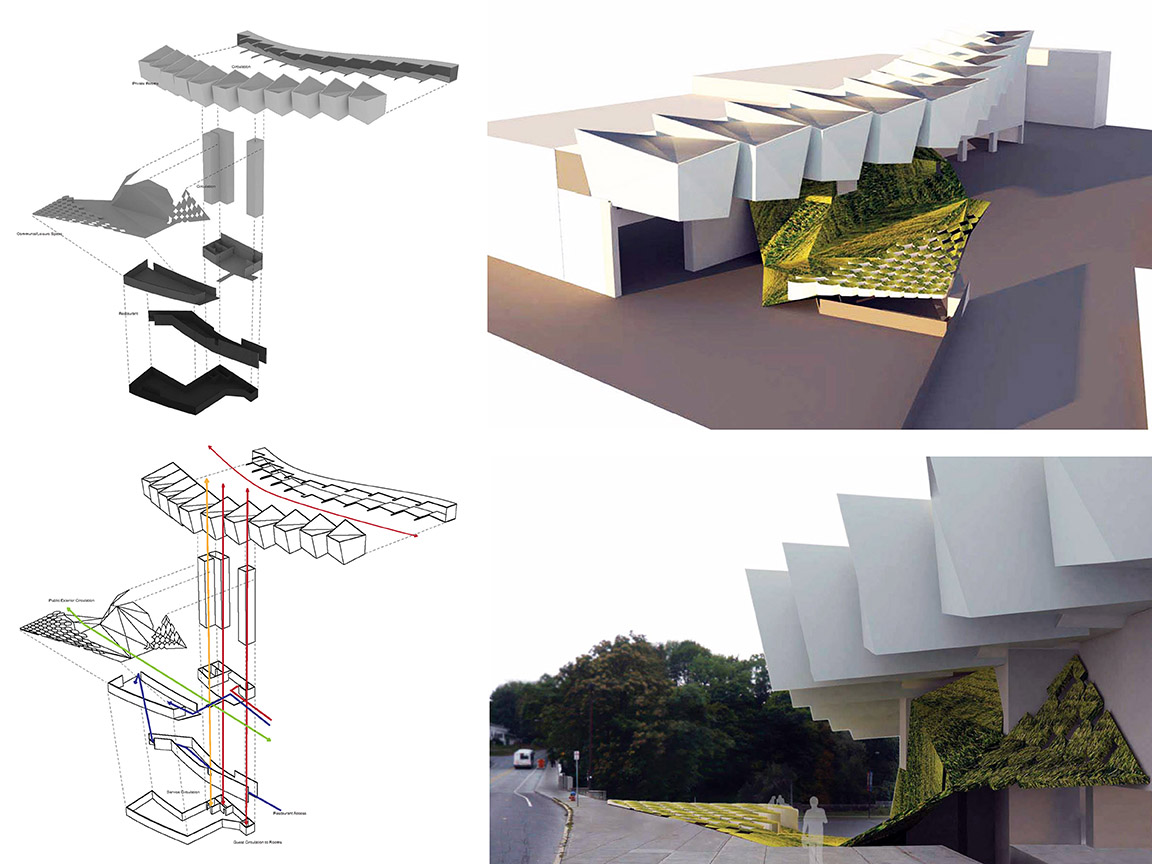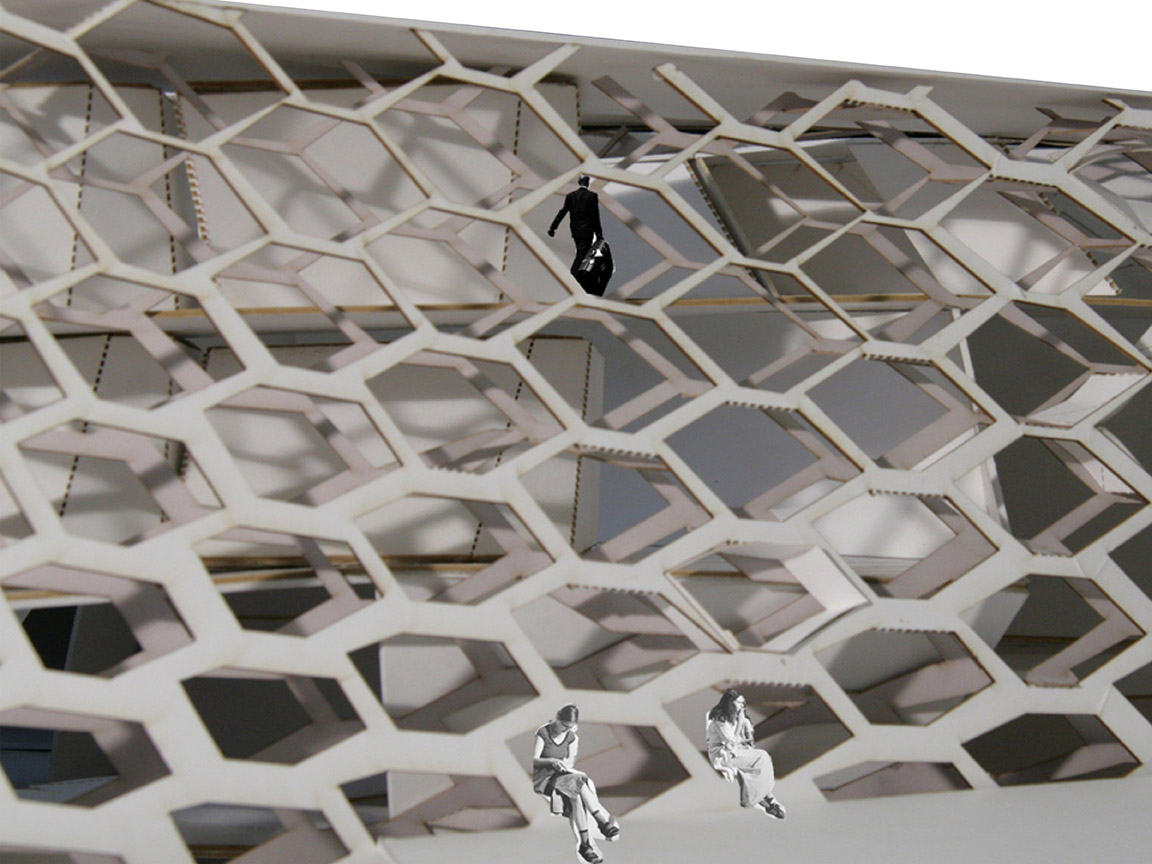OENOTEL
| Cornell University | Fall 2008 |
| UG Core Design Studio | 2nd Year |
Oenotel represents the typological and experiential fusion of a hotel and wine tasting. Focused on creating variation within the standardization of hotel typologies, it creatively promotes wine production from the Finger Lakes region. In the City of Ithaca, the demand for hotel accommodations fluctuates rapidly with the seasons and academic calendar. This fluctuation prompts a rethinking of the organizational and occupational balance between private habitation and public use of hotel spaces. The goal is to challenge the normative characteristics of hotel design while leveraging its repetitive nature. Hotels, as inherently repetitive building types, are often shaped by developer-driven, economy-focused solutions that overlook site specificity and temporal use. However, these factors hold significant potential to inform both internal and external organization and programmatic hybridization. While variation is desirable, the necessity of repetition is recognized as a viable material and economic strategy in building construction. The aim is to explore greater systemic responsiveness to deviations from standard hotel typologies, thus informing new models of temporary habitation that also support public urban spaces for the broader community.
| INSTRUCTOR: Dana Cupkova | STUDENTS: Andrew Heumann, Peter Levins, Hugo Lemes, Jae Hee Lee, Karl Tsui, Walker Smith-Williams, Patricia Echeverria |

